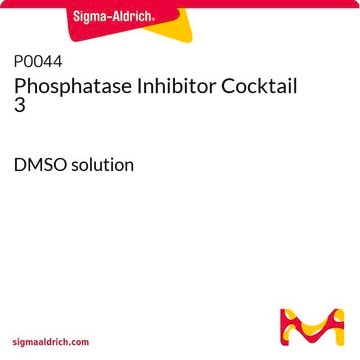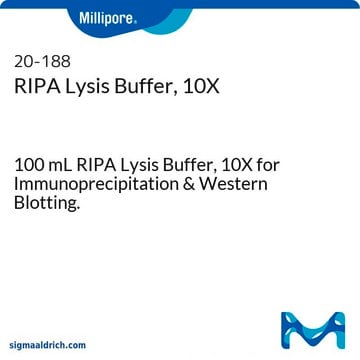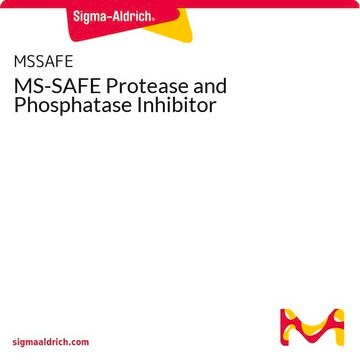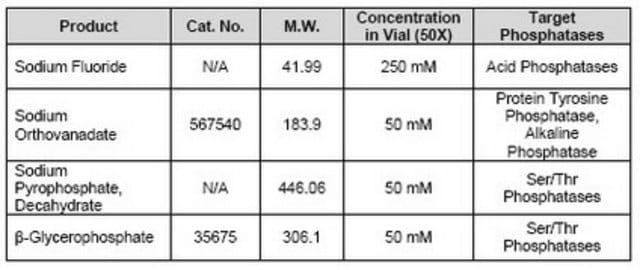PPC1010
Protease and Phosphatase Inhibitor Cocktail
DMSO solution, for the inhibition of serine, cysteine, acid proteases, aminopeptidase, serine/threonine protein phosphatases and L-isozymes of alkaline phosphatase
Synonym(s):
Protease and Phosphatase Inhibitor Mix, Protease and phosphatase inhibitor
About This Item
Recommended Products
product name
Protease and Phosphatase Inhibitor Cocktail,
form
DMSO solution
Quality Level
packaging
pkg of 1 ml, 5 ml ×
shipped in
wet ice
storage temp.
−20°C
General description
Application
- for cellular protein extraction
- to lyse purified CD4+ T cells
- to prepare protein extracts from placental tissues and cells
Preparation Note
Other Notes
Signal Word
Warning
Hazard Statements
Precautionary Statements
Hazard Classifications
Eye Irrit. 2 - Skin Irrit. 2
Storage Class Code
10 - Combustible liquids
WGK
WGK 2
Flash Point(F)
188.6 °F
Flash Point(C)
87 °C
Certificates of Analysis (COA)
Search for Certificates of Analysis (COA) by entering the products Lot/Batch Number. Lot and Batch Numbers can be found on a product’s label following the words ‘Lot’ or ‘Batch’.
Already Own This Product?
Find documentation for the products that you have recently purchased in the Document Library.
Customers Also Viewed
Related Content
Cell lysis and protein extraction methods overview various techniques, from detergent solubilization to mechanical disruption, supporting research needs.
Cell lysis and protein extraction methods overview various techniques, from detergent solubilization to mechanical disruption, supporting research needs.
Cell lysis and protein extraction methods overview various techniques, from detergent solubilization to mechanical disruption, supporting research needs.
Cell lysis and protein extraction methods overview various techniques, from detergent solubilization to mechanical disruption, supporting research needs.
Our team of scientists has experience in all areas of research including Life Science, Material Science, Chemical Synthesis, Chromatography, Analytical and many others.
Contact Technical Service

















